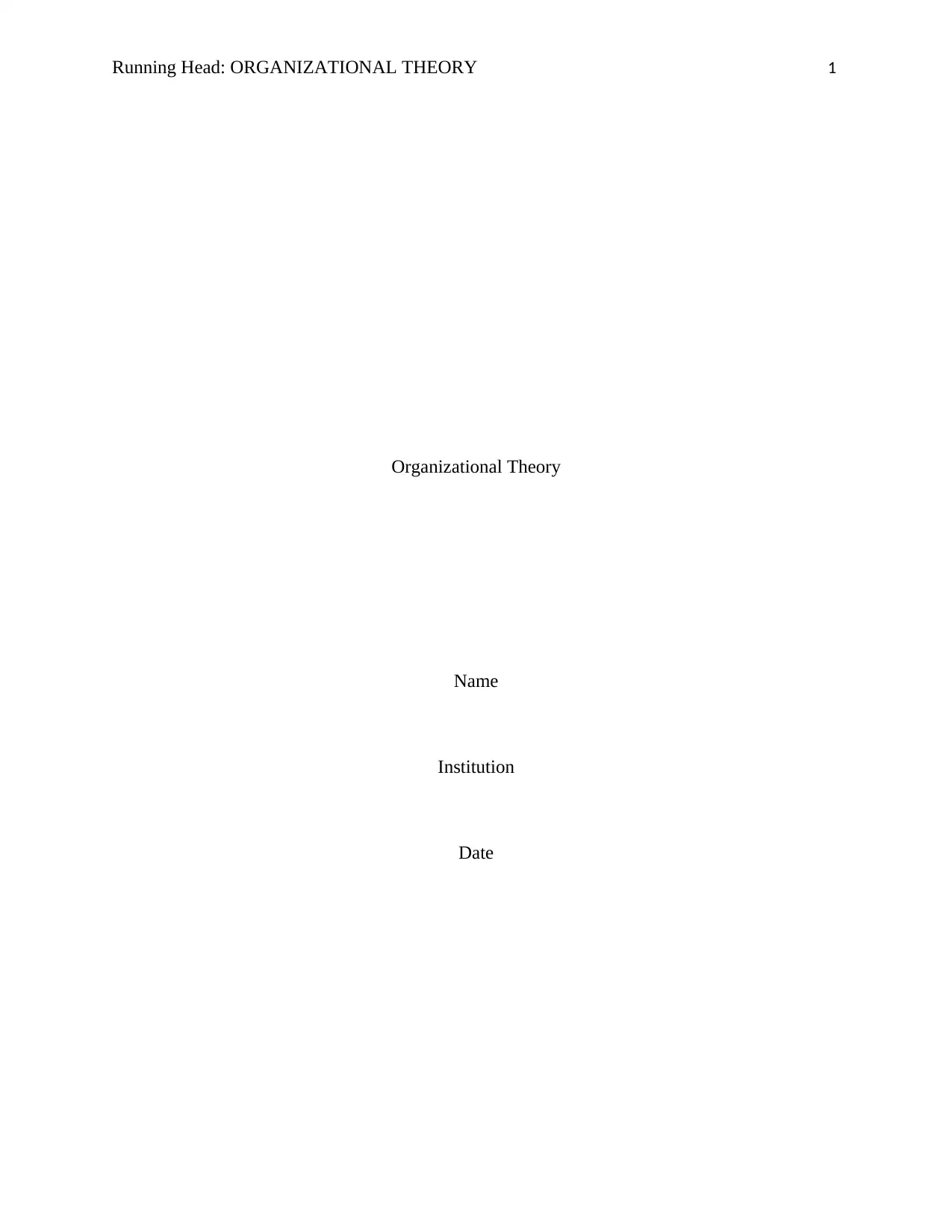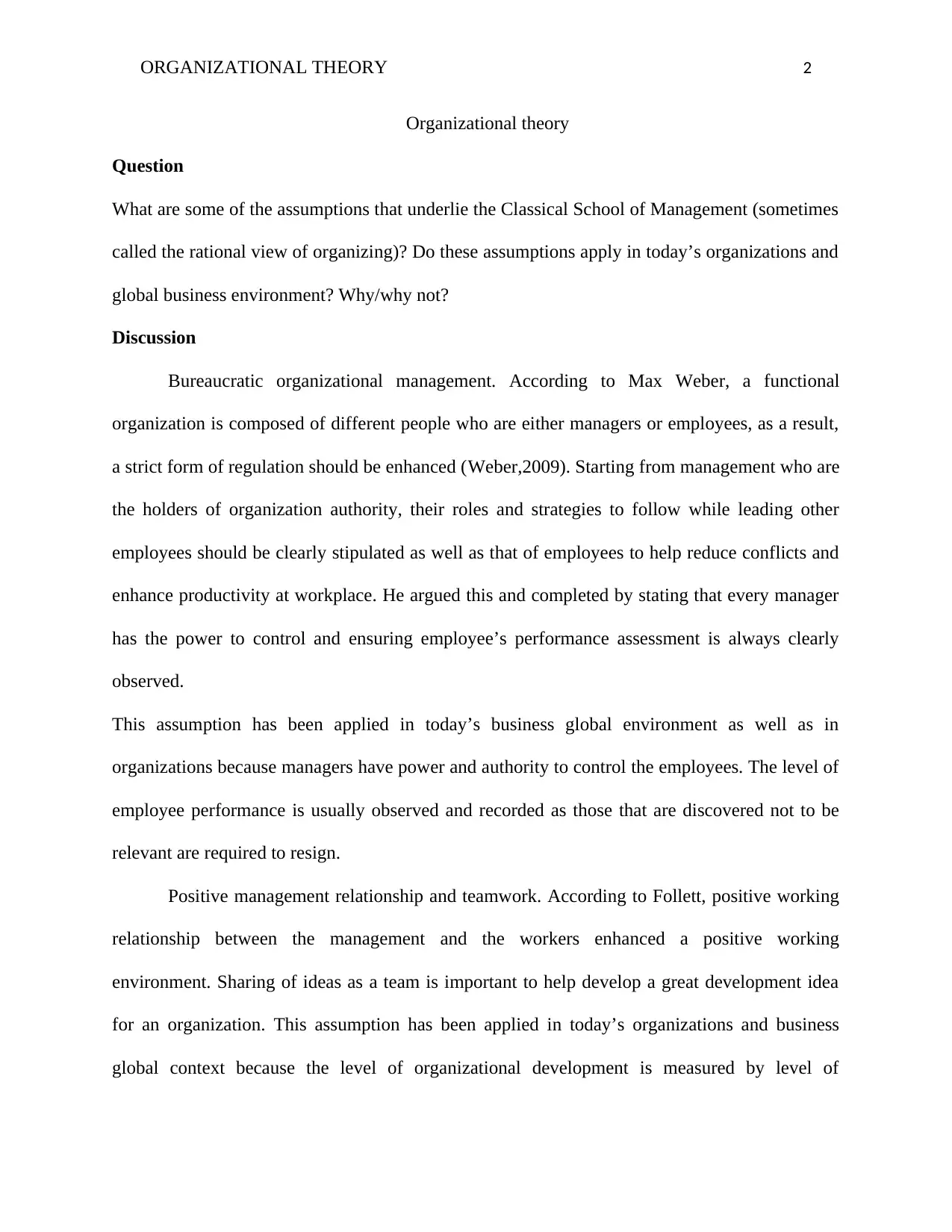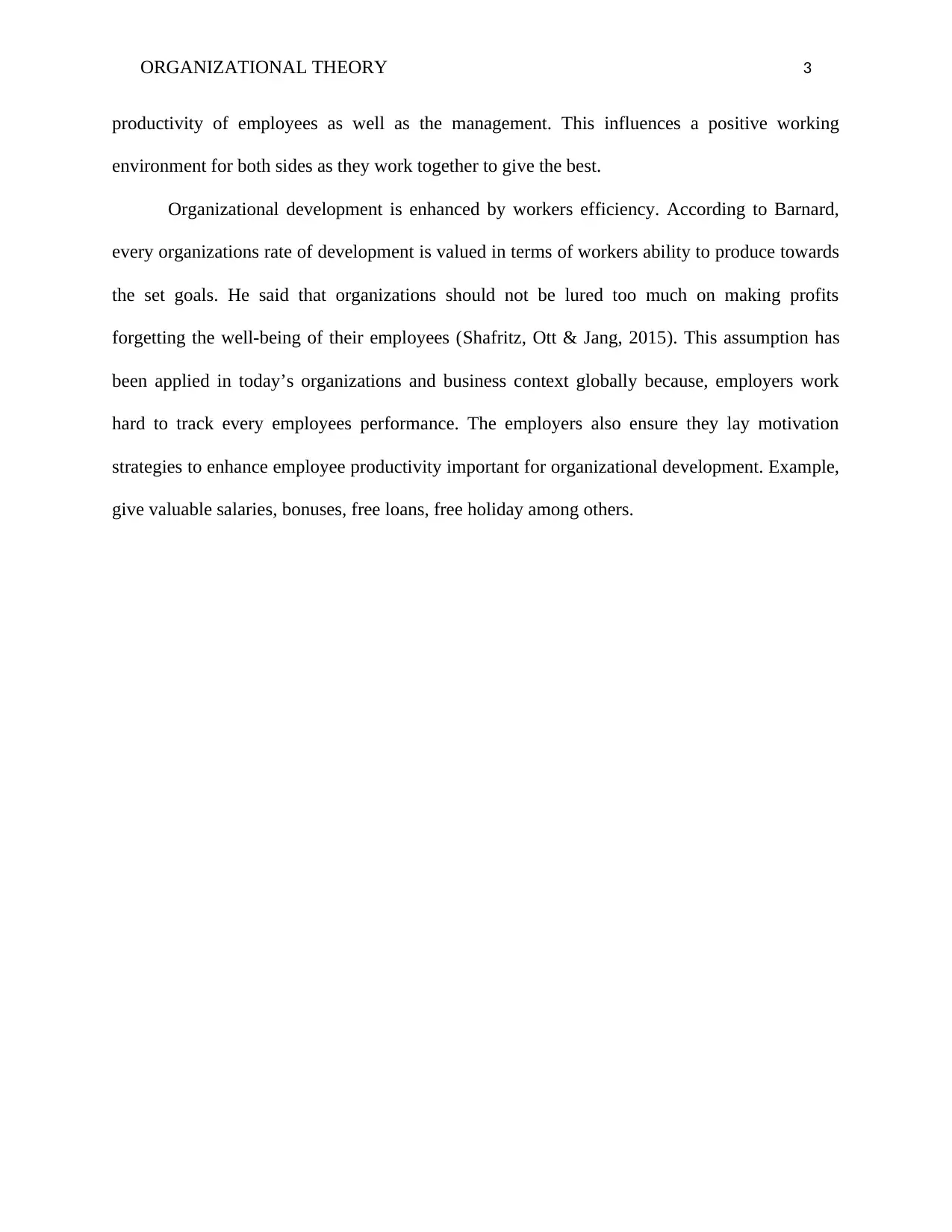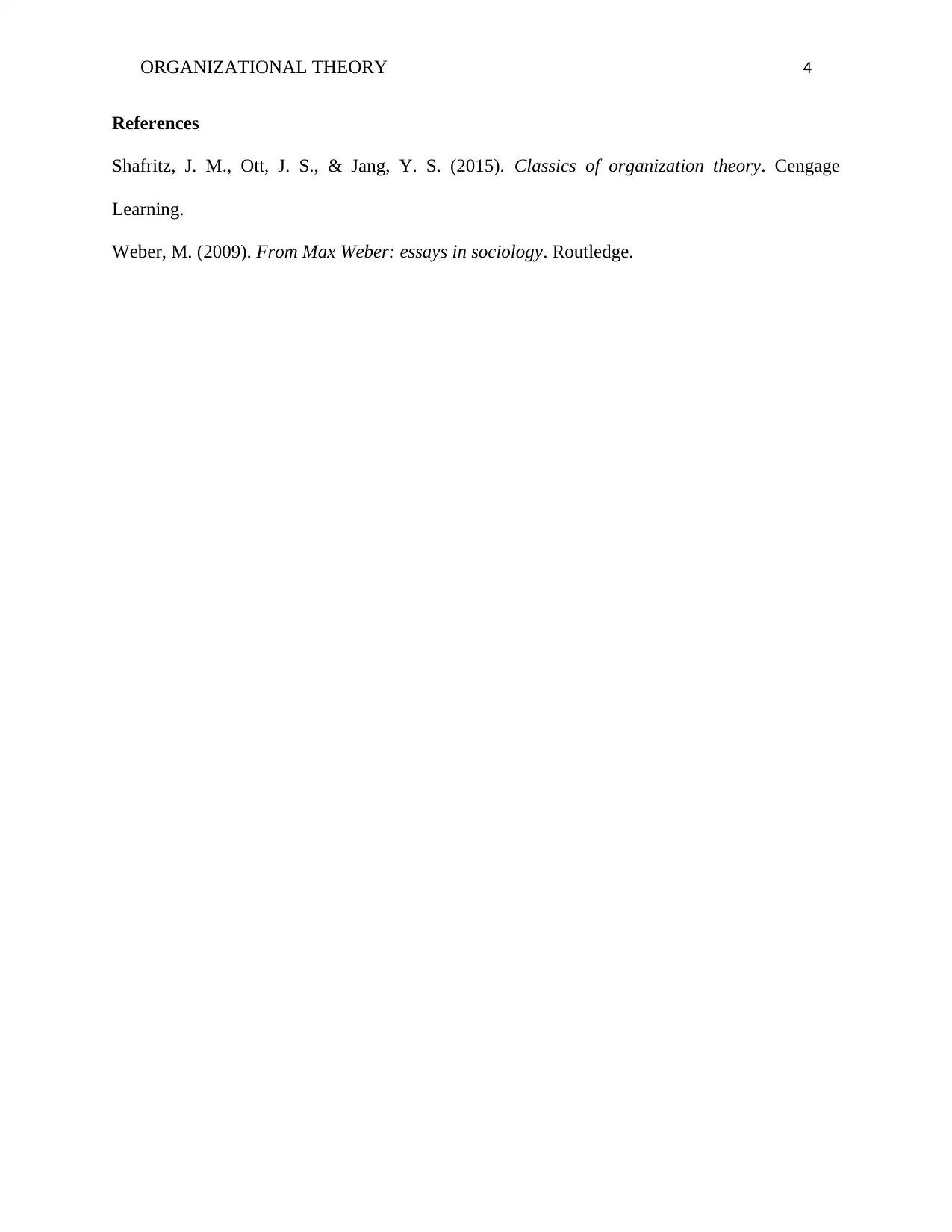Impact of Classical Management Theory on Today's Organizations
VerifiedAdded on 2020/03/16
|4
|477
|177
Report
AI Summary
This report examines the classical school of management, focusing on the assumptions underlying its principles and their relevance in contemporary organizational contexts. It discusses the contributions of key figures like Max Weber, Follett, and Barnard, highlighting their emphasis on bureaucratic structures, positive working relationships, and employee productivity. The report analyzes how these assumptions, such as the importance of management authority, teamwork, and worker efficiency, are applied in today's business environment. It references specific examples and organizational practices to illustrate the ongoing influence of classical management principles. The report also underscores the importance of employee well-being and motivation as critical factors in organizational development and success, emphasizing the continued relevance of these foundational ideas in modern business strategies.
1 out of 4











![[object Object]](/_next/static/media/star-bottom.7253800d.svg)